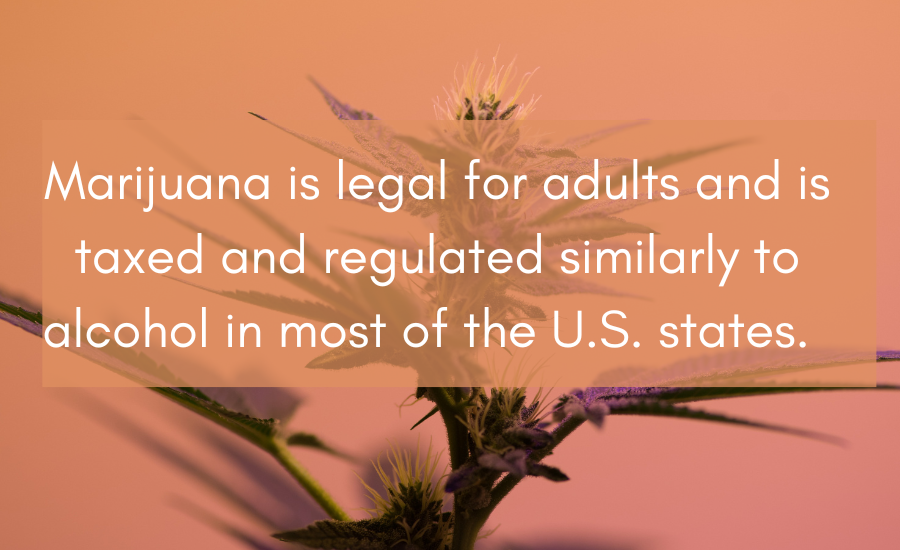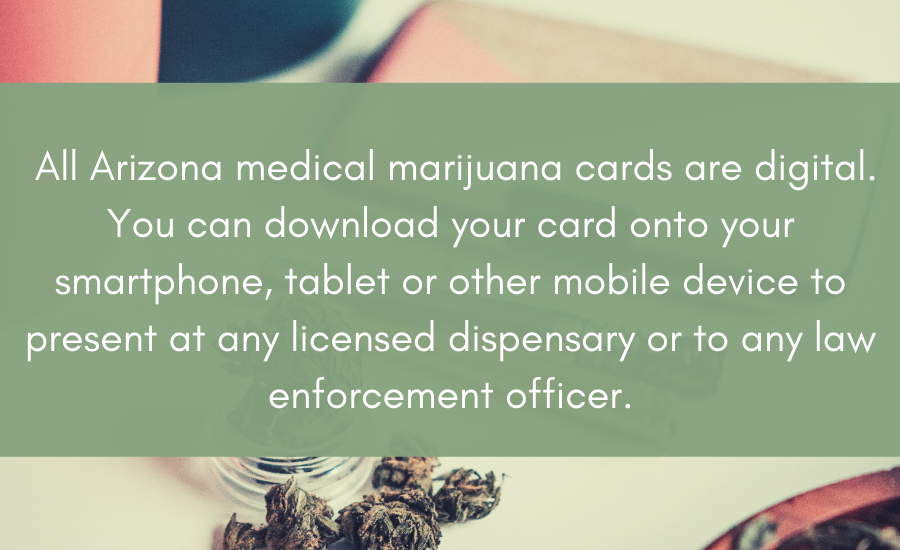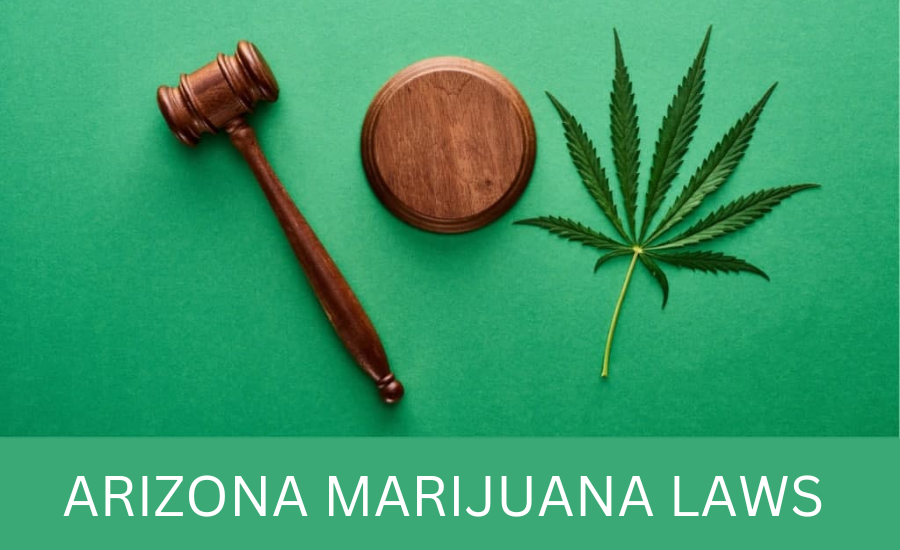Short answer: The most updated information on Arizona cannabis-related laws. Recent medical requirements and qualifying conditions for medical marijuana card in Arizona. Updated on November 18th, 2022.
Medical marijuana has been legal in the state of Arizona since 2010 when voters approved Proposition 203 to enact the Arizona Medical Marijuana Act (AMMA.) The act assigns the Arizona Department of Health Services (AZDHS) with the responsibility of regulating medical marijuana in the state.
In 2020, Arizona also legalized recreational marijuana. However, the laws and rules governing the purchase, sale, possession and use of marijuana in Arizona vary greatly between recreational and medical marijuana, such as those involving age and quantity restrictions. The following aims to clarify those Arizona laws and rules specific to medical marijuana.
Read also: What Allotment Medical Marijuana Patients Have in Arizona.
Arizona Marijuana Laws
In Arizona, there are several legislative acts that govern the use of medical and recreational cannabis. The first and most important one, from which it all started, is Proposition 203, which was accepted in November 2010. The act was approved with 50.1% of the vote, meaning that anyone can possess up to 2,5 ounces (71 grams) of cannabis with a doctor’s recommendation for the treatment of a specific qualifying condition. It was also stated that only patients who lived more than 25 miles from a medical marijuana dispensary were allowed to grow their own cannabis. Proposition 203 specifies the number of available dispensaries – 124. Governor Jan Brewer, Attorney General Terry Goddard, all of the state’s sheriffs and county prosecutors, and a number of other state legislators opposed Proposition 203, but nevertheless it was approved. After the adoption of the law, there were several attempts by the opposition to refute it and recognize dispensaries as illegal, but they were unsuccessful. As a result of this struggle, the first licensed sales of marijuana took place in Arizona only in December 2012.
The next step was in November 2020, when the initiative to legalize recreational use (Proposition 207, the Smart and Safe Act) passed with 60% of the vote. The following rules were stated in this act:
- Recreational marijuana has become legal for use by adults;
- Arizona adults are allowed to possess up to 1 ounce (28 g) of marijuana (with no more than 5 g being marijuana concentrate) and have up to 12 marijuana plants in households with two or more adult members;
- Marijuana becomes subject to state and local sales taxes like other retail goods, with an additional 16% excise tax on all recreational marijuana products;
- Allowance of the “drug-free workplace” rules by companies and restriction of the use of marijuana by employees and candidates;
- Forbidding the public use of marijuana and the sale of marijuana products that look like “humans, animals, insects, fruits, toys, or cartoons”;
- Penalties for marijuana possession by minors include a $100 fine and drug counseling for a first offense for possession of less than an ounce of marijuana.
Possession and cultivation of recreational cannabis became legal on November 30, 2020, with the first sales occurring on January 22, 2021, thus making Arizona the first state in the history of the United States to start retail sales of recreational marijuana under state licensing.

Obtaining an Arizona Medical Marijuana Card in 2022-2023
All medical marijuana patients in Arizona must have a valid, unexpired medical marijuana card in order to use marijuana medically rather than recreationally.
Medical Requirements
To get an Arizona medical marijuana card, you must have a diagnosis for at least one of the qualifying conditions for medical marijuana in Arizona. Furthermore, a licensed physician must examine you to verify the diagnosis and submit a recommendation to the Arizona Department of Health Services (AZDHS) for you to use medical marijuana.
Qualifying Conditions
To get a medical marijuana card in Arizona, you must have one of these conditions:
- Agitation of Alzheimer’s disease
- Amyotrophic Lateral Sclerosis (ALS)
- Any chronic or debilitating medical condition or disease or the treatment for one that causes cachexia or wasting syndrome
- Cancer
- Chronic pain, such as from migraines or arthritis
- Crohn’s disease
- Glaucoma
- HIV or AIDS
- Hepatitis C
- Post-traumatic stress disorder (PTSD)
- Severe nausea
- Severe or persistent muscle spasms, such as those associated with multiple sclerosis
- Seizures, including from epilepsy
Read also: Can You Get a Medical Marijuana Card for ADHD in Arizona?
Age Requirements
You can become an Arizona medical cannabis patient at any age, including as a minor. You must present a valid Arizona state driver’s license or ID card with your application to verify your age as well as Arizona residency. If you are younger than 18, you need a legal guardian over 18 years old to register as your medical marijuana caregiver. As your caregiver, this guardian will procure medical marijuana from licensed dispensaries on your behalf.
Recommendation
To get the required recommendation for medical marijuana, you must visit with a licensed Arizona physician qualified to recommend medical marijuana to patients. You can find such a doctor on your own and schedule an in-person visit or you can use our services at AffordableCertification and be connected with a licensed and qualified MD within 20 minutes from the comfort, safety and privacy of your own home via telemedicine.

Fees
The fee structure for medical marijuana cards in Arizona is as follows:
- Initial or renewal MMJ card for all qualifying patients who do not qualify for a discount – $150
- Initial or renewal MMJ card for participants in SNAP (Supplemental Nutrition Assistance Program – $75
- Initial or renewal MMJ caregiver card – $200
- Making changes or amendments to an MMJ card – $10
Receiving Your Card
Within 10 days after completing the application process, the AZDHS will email you your medical marijuana card. All Arizona medical marijuana cards are digital. You can download your card onto your smartphone, tablet or other mobile device to present at any licensed dispensary or to any law enforcement officer to identify yourself as a registered medical marijuana patient in Arizona.
Renewals
In Arizona, a medical marijuana card is valid for a period of two years. Before your Arizona MMJ card expires, you must have it renewed. This requires attending another doctor’s visit for an updated recommendation and paying another fee. The costs for the doctor’s appointment and fee for a MMJ card renewal are typically lower than those for an initial visit and card. If you let your Arizona medical marijuana card expire, you must start the process of obtaining an initial visit and card all over again.
Read also: How to Renew Your Medical Card Online.
Purchasing Medical Cannabis
Quantity Limits
With an AZ MMJ card, you can buy up to 2 1/2 ounces of medical cannabis, of which no more than 12 1/2 grams is in the form of cannabis concentrate, every two weeks. Possessing more than this amount at any one time, even by a medical marijuana cardholder, is classified as a petty offense in Arizona.
Potency
The AZDHS imposes no potency limits on medical marijuana purchases.
Taxes
While an excise tax, currently of 16%, is added to all recreational marijuana purchases in addition to state and local taxes, medical marijuana patients pay only state and local taxes but are exempt from any excise tax. At current tax rates, this amounts to approximately 8% in taxes for medical marijuana purchases.
Dispensary Lines
Due to the high demand projected for legal marijuana in the state, most Arizona dispensaries provide separate lines for medical and recreational customers. This can reduce the wait time considerably for medical marijuana patients. However, there are no state laws or rules requiring that dispensaries create separate lines.
Cultivation
It is legal in Arizona for medical marijuana patients to cultivate their own marijuana, but only under strict guidelines, including a limit of 12 plants. Alternatively, Arizona medical marijuana patients can appoint a caregiver to cultivate medical marijuana on their behalf.
Reciprocity
Reciprocity is the recognition of one state’s medical marijuana card in another state with legal medical marijuana. Arizona offers reciprocity with all other states with a similar medical marijuana registration process. In such cases, valid medical marijuana cardholders visiting Arizona from another state are protected under Arizona medical marijuana law, as long as they abide by Arizona medical marijuana laws and rules.
As for using an Arizona medical marijuana card in another state, Nevada offers reciprocity with Arizona medical marijuana cardholders, although Arizona patients visiting Nevada must abide by all Nevada medical marijuana laws and rules.
Proximity to a Patient
It is not illegal in Arizona for an individual, whether an Arizona resident or a visitor to the state, to simply be in close proximity to a cardholding patient who is using medical marijuana.
Using Medical Marijuana
Public Use
It is illegal in Arizona to use any type or form of marijuana in a public place, even by a legitimate cardholding medical marijuana patient.
Place of Employment
There are certain legal protections afforded medical marijuana patients in Arizona from discrimination by an employer. While Arizona employers are permitted to keep a “drug-free workplace” and enforce policies maintaining that, such as required drug testing, employers are forbidden from applying those policies unequally among employees.
Read also: What Legal Marijuana Under Proposition 207 Means to Arizona Employees and Employers.
Driving
According to the Arizona Supreme Court, motorists cannot be prosecuted for driving under the influence of medical marijuana unless the driver is impaired when the authorities stop him or her. Detecting the presence of inactive cannabis metabolites or cannabis compounds like CBD that are non-psychoactive does not constitute impairment and does not qualify as probable cause for detaining an individual or searching his or her vehicle, nor does merely possessing a medical marijuana card or application.
2023 Cannabis Forecast
Through 2023, the demand for cannabis among end users is anticipated to increase by 8.4% yearly. It is obvious that demand provokes sales, and it’s predicted that marijuana sales may triple to $30 billion by 2023 and will continue to grow further.
If we talk about the U.S. recreational marijuana market, it expects a growing revenue ranging between $18.1 billion to $22 billion in 2023. The states, like California, Arizona, Washington, etc., where recreational marijuana is legalized and patients no longer have to see a licensed physician to be prescribed weed, promote the biggest part of the recreational revenue.
As for the legislative prospects, federal marijuana legalization doesn’t look likely soon, however, cannabis market on the state level has a lot of room for improvement. According to MJBiz CEO Chris Walsh, marijuana banking reform and the federal scheduling of cannabis are both on the table in 2023. Indeed, a group of state treasurers has decided to reiterate their support for a resolution urging Congress to pass federal marijuana banking reform legislation. This reform could radically change the way cannabis businesses functions: at the moment, it only accepts cash which makes it harder to track illicit activity and poses a serious risk to public safety by raising the likelihood of violent crime. Thus, this reform is most anticipated in 2023.
Here are some general marijuana market predictions for 2023:
- More states will make marijuana legal. For example, starting July 1, 2023, recreational marijuana will become legal in Maryland. The Minnesota legislature can legalize weed in 2023 as well.
- Cannabis brands will keep merging. The well-known cannabis companies, such as Curaleaf, Trulieve, Aurora, Green Thumb, Tilray, and Canopy, may become even more well-known as more states legalize adult-use marijuana and more small- and medium-sized firms can potentially join them. Craft brands will continue to develop. Consumer demand is expected to create markets far beyond cannabis mega-brands.
- More steady and consistent policy will be seen, particularly in more developed states where authorities have had more time to work out complicated laws like those governing cannabis DUI limits, patient card requirements, and flower testing regulations.
Knowing how cannabis laws work in your area can benefit you legally, as well as socially. You can get this and other cannabis-related information by contacting our certified physician. Thanks to telemedicine, it’s now easy to schedule an appointment online, without leaving your home. Just sign up by clicking on the link below.

